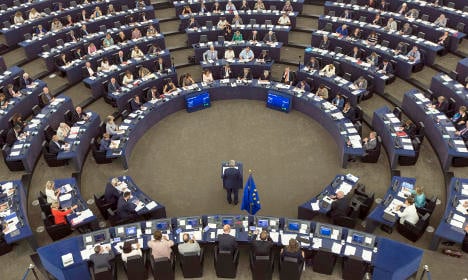The latest edition of the European Parliament’s Parlemeter poll showed that only 53 percent of EU citizens polled think the EU is a good thing for their country, a decrease of two percent from the previous edition of the study in 2015.
In Sweden, things are different however: in this year’s study, 64 percent of Swedes said that the EU is good for Sweden, a five percent increase since 2015.
62 percent of Swedes said that their country had benefited from being a member of the EU meanwhile, a four percent increase since 2015. The EU average for the same question is 60 percent, unchanged from the previous year.
The most common reason why Swedes think their country benefits from the EU is “membership improves co-operation between Sweden and the other countries of the EU” (53 percent), which on average only 29 percent of respondents across the 28 EU nations agreed with in regards to their country.
It isn’t all positive however: 55 percent of Swedish respondents said that things are going in the wrong direction in the EU – one percent higher than the EU average of 54 percent.
The 2016 Parlemeter was carried out between September 24th and October 3rd, several months after the United Kingdom’s June 23rd referendum vote to leave the EU.
In July, a survey carried out by pollsters Novus for Swedish TV4 suggested that the Brexit vote had strengthened Swedish positivity on the EU, with 63 percent of Swedes saying they would vote to remain in the union if a referendum was held, up from 58 percent saying they would do so in a previous Novus study conducted before the British vote.
A Sweden-based political scientist specializing in EU politics told The Local at the time that Britain’s vote to leave the EU had urged Swedes to think in more detail about Europe.
“The average Swedish person doesn’t think or care much about the EU, but Brexit brings it to the fore. The UK referendum made a complicated issue real, and people in Sweden are suddenly forced to think about what the EU is rather than just having a vague opinion on it,” Ian Manners noted.



 Please whitelist us to continue reading.
Please whitelist us to continue reading.